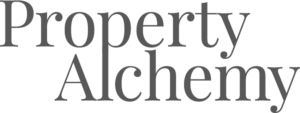While we understand much has been written about this topic, there are always
nuances that that are often overlooked. We do note this list certainly not exhaustive,
however, we hope you’ll find advice of value here.
Make sure it’s for you
Do you know your way around power tools? How are you at repairing holes in
gyprock? Can you unblock a toilet? While you can call a professional, your mortgage
may simply not allow that extravagance. Property investors who have the time and
expertise can do their own repairs to save money. If this is not you and you don’t
have spare money lying around, think carefully before buying a property that requires
a lot of work before you can lease it out. Don’t be misled by reality ‘fixer-upper’ TV shows.
Find the right location
Cost, access to amenities, schools and public transport, all factor in your rental
return and indeed, the re-sale value of your property. Do your research.
Save your deposit
Investment properties often require a larger deposit than owner-occupied properties,
so there are often more stringent approval requirements. You may need 20 per cent
or (if available), you may have to take out mortgage insurance which can be
expensive.
Be aware of higher interest rates
The cost of borrowing money might be affordable now, but it is currently the case
that rates on investment properties are higher than traditional owner-occupied
mortgage rates and may increase further. Remember, you need a mortgage
repayment that’s low enough (even with your rental income) so if the rate increases
you can still manage your repayments.
Calculate your costs
As a rule of thumb, estimate your maintenance costs at one per cent of the property
purchase value annually. Other costs to consider include, rates, insurance and even
pest control.
Know your operating expenses
The operating expenses of a rental income property are a key part of any real estate
cost analysis because they impact a rental property’s net operating income and as a
result – its cash flow, rates of return and profitability.
Many new real estate investors and even those that have been involved for some
time, often don’t understand which items constitute rental property operating
expenses and which do not.
For simplicity, here is a guide to some legitimate operating expenses.
- Insurance (landlord insurance and building insurance)
- Water (where water safety devices are fitted)
- Council rates
- Property management costs
- Electricity
- Repairs and maintenance
- Smoke alarm testing and replacement
- Tax depreciation
- Interest incurred on your mortgage
In simple terms, these are all costs associated with keeping the rental property in
service, occupied and the rental income flowing.
Know your non-operating expenses
Understanding which rental property expenses to exclude from operating expense
calculations is also one of the more common mistakes investors make in their real
estate analysis. So here’s a few common costs that shouldn’t be included in
operating expenses but need to be consider in your non-operating cost base.
- Interest and principal repayments
- Depreciation (loss of value over time)
- Capital improvements (renovating costs)
- Applicable taxes – e.g. land tax
The bottom line
We always encourage our clients to keep their expectations realistic. Like any
investment, a rental property isn’t going to magically produce thousands of dollars a
month. This said, without careful consideration and research, buying the wrong
investment property could be a disaster.
We always encourage new or existing investors to talk to industry professionals. At
Property Alchemy, we can help guide you through all elements of property
investment from search and purchase through to professional management.

